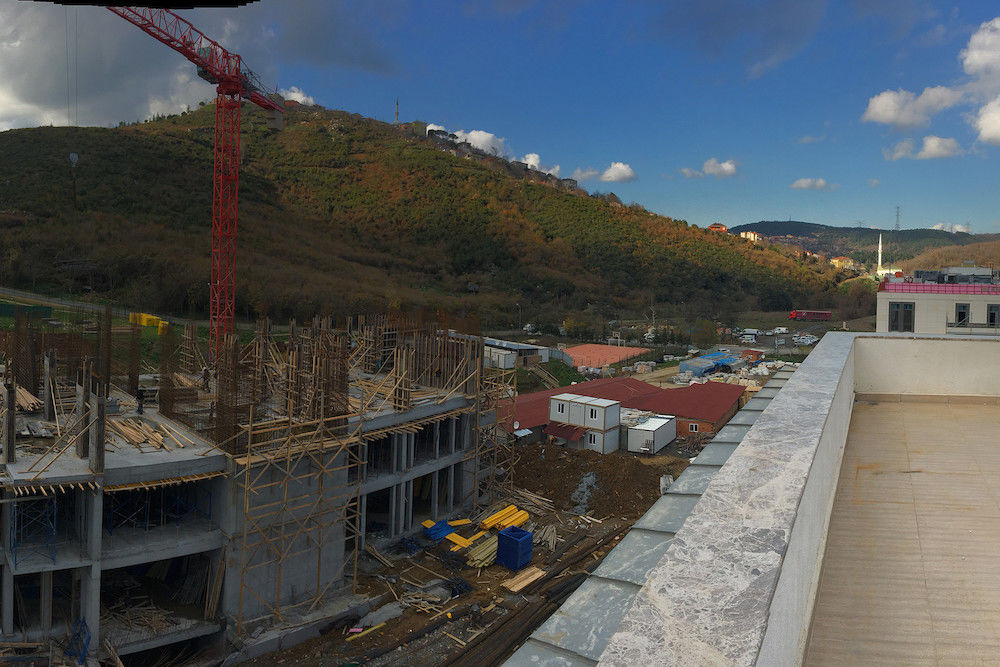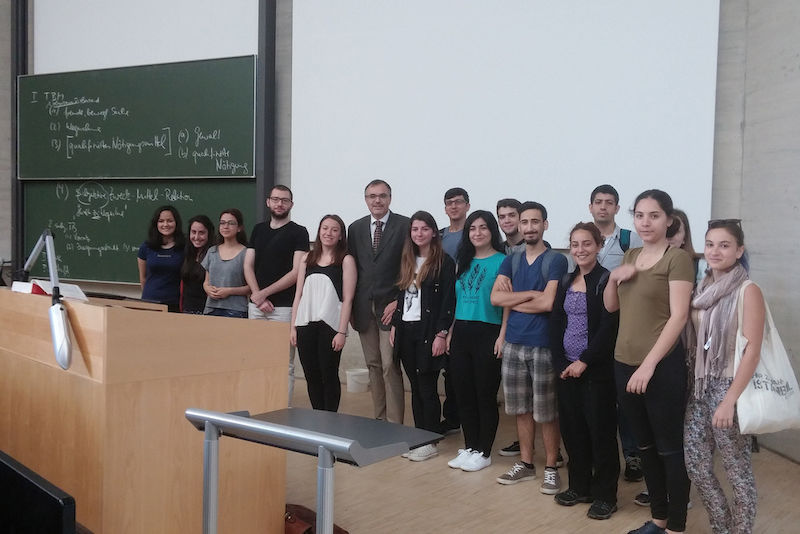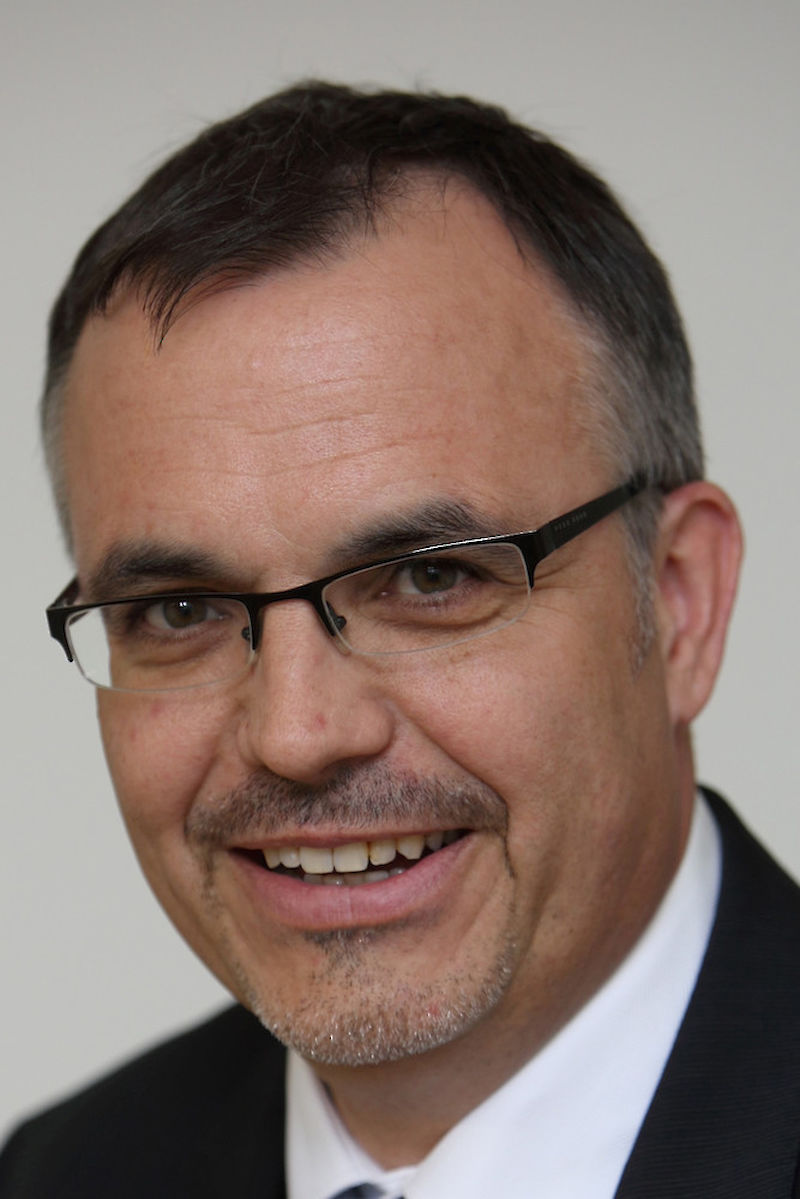A new connection with Istanbul

When a coup was launched on 15 July to topple Turkish president Recep Tayyip Erdoğan, criminal law professor Henning Rosenau was in a block seminar in Germany’s Harz region with 18 law students from the Turkish-German University. “They were on their smartphones all night long, of course, watching as events unfolded,” Rosenau recalls.
“The coup came as a real shock to the whole country,” he says. Rosenau had previously been discussing hot-button issues in criminal law, like insulting bodies and representatives of foreign countries, with the participants in the summer school he had organised. Before that, the guests had visited the administrative court, local court, regional court, and the local correctional institution in Halle.
The Turkish president responded to the coup attempt with arrests, the firing of tens of thousands of employees, and other repressive measures, which were met in Germany with concern and criticism. At TDU, six academic employees had also been dismissed by November. “Our local colleagues are concerned, of course. After all, academic freedom is at risk,” Rosenau says. But the changes at the university in Istanbul have been minor. “The students are open in their discussions with me, and I don’t perceive a direct threat to freedom of speech at TDU.”
Rosenau has been involved in activities to support cooperation with Turkish scholars and researchers for more than 15 years. “During my time as an assistant, I had a colleague from Turkey. He and I talked a lot about the differences between German and Turkish medical law,” recalls Rosenau, who now serves as the director of the Interdisciplinary Centre for Medicine – Ethics – Law at the University of Halle. “At the time, developments under Erdoğan were still viewed very positively by the international community,” he says. After winning the election in 2002, the new president of Turkey enacted a series of reforms.
“He abolished the death penalty and modernised the criminal law system. In the process, he looked to the German model, which is why there is particular interest in German criminal law in Turkey today.” But that isn’t the only reason Rosenau has held four to six block seminars in Istanbul every winter semester since TDU opened its doors to students. “For legal scholars, it is generally important not to consider legal questions solely from one national perspective, but instead to get to know other cultural viewpoints as well so that we realize that there are different ways to handle issues of criminal liability.”
The German instructors’ teaching activities at TDU are financed via the German Academic Exchange Service (DAAD). Turkey pays the majority of the costs of the binational project. “The Turkish-German University is a flagship project that aims to promote dialogue and exchange in research and teaching activities between two countries,” says Rosenau. The study programmes have an intercultural focus and are offered in German, English, or Turkish. The university is a state-run higher education institution and is subject to Turkish law. A German consortium of 36 universities is providing advice and support during TDU’s development. The University of Halle joined this body – which also includes Heidelberg University and Freie Universität Berlin – in February. Consortium members also provide some of the professors.
When the university was looking for an advisor to develop the international finance study programme, Rosenau asked around among his colleagues in Halle. Professor Martin Klein, an economist, accepted the challenge. “We have the right background in the subject. And these kinds of cooperative initiatives can lead time and again to surprising multicultural opportunities that feed into each other,” says Klein, who – together with his research associate Dr Tobias Weirowski – has taken on the role of advisor and DAAD coordinator for the study programme.
The professor of international economic relations held his first talks in Istanbul in May. “We planned the study programme in June, and the English-language Master’s degree programme started with its first students not long afterwards, in September.” Like Rosenau, Klein and Weirowski now teach in Istanbul several times a semester. International financial markets are the subject of their seminars, which are taught in English. Their students are working professionals, so lectures take place in the evening. “Regardless of whether they work in the public or private sector, their education will strengthen the liberal order in the country at some point,” Klein says.
In the tough political situation currently in effect in Turkey, everyone involved believes the German-Turkish exchange is very important: “We have an obligation to keep the channels of cooperation open. Our influence can be a positive, balancing one. If we were to break off contact, it would only be even more polarising,” Klein says. Plans call for students from the University of Halle to also have an opportunity to benefit from the new connection with Istanbul soon: “In January 2017, we will be holding a joint block seminar in Halle for students from TDU, our Italian partner university in Milan, and our German students of business and economics,” announces Weirowski.
Kontakt: Prof. Dr. Henning Rosenau
Strafrecht, Strafprozessrecht, Rechtsvergleichung und Medizinrecht
Tel.: +49 345 55-23110
E-Mail schicken


